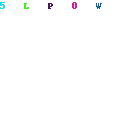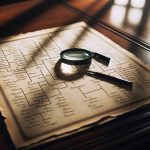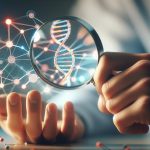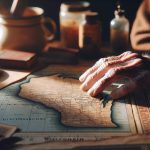At Lineage Journeys, the focus is on delving into the rich ancestral traditions of North America and Europe while meticulously tracing family trees, histories, and the routes ancestors took to arrive where they are today. The brain behind this initiative, Judy Nimer Muhn, brings to light her own path into the realm of genealogy. Through her story, she lays out some precious tips for anyone eager to embark on a quest to uncover their family’s past.
Judy’s venture into genealogical research wasn’t just a leap; it was a calculated step inspired by a deep respect for ancient spiritual practices and an unwavering commitment to historical accuracy. Her work isn’t simply about putting names on a family tree; it’s about reconnecting with one’s roots in a meaningful way.
For those at the beginning of their journey into their family history, Judy suggests starting with what you know and then branching out from there. It’s like piecing together a puzzle – every bit of information helps complete the picture. The guidance offered by Lineage Journeys serves as both an inspiration and a roadmap for navigating through the complexities of lineage research.
In essence, if unraveling your heritage speaks to you or if understanding where you come from matters deeply, then taking cues from Judy’s insights could be your first step towards discovering not just your ancestors but potentially unlocking stories that have shaped who you are today.
The Origin and Development of Lineage Journeys
My journey into the world of genealogy kicked off when I was just 12, sparked by a school project aimed at exploring our ancestral roots. This assignment wasn’t just another task; it became a gateway to discovering layer upon layer of my family’s history. My enthusiasm led me to seek help from my mom, who pointed me in the direction of Aunt Catherine. She wasn’t just any relative; she was the keeper of our family’s stories, someone who had an extensive network and loved connecting with our kin across the country.
This passion for uncovering our familial past wasn’t without its challenges, especially in an era before the digital age made research a breeze. However, the allure of untold stories and hidden connections kept me persevering. It wasn’t long before this hobby transformed into a professional path for me during my time in Germany, culminating in the creation of Lineage Journeys in 2012.
Diving deep into genealogy revealed a rich tapestry of backgrounds within my own lineage — from Native American, French Canadian, and Scottish on my mother’s side to German, Polish, and Jewish on my father’s side. The process involved reaching out to relatives far and wide, piecing together narratives through letters hoping for replies wrapped up with stamped envelopes sent back our way.
In navigating libraries with Aunt Catherine or eagerly awaiting mail from distant relatives, what began as a curious exploration soon turned into a lifelong pursuit filled with remarkable discoveries about where I come from. And as they say: that’s how history was made.
Who usually comes to you for help?
Individuals often seek assistance in exploring their family history, especially when they lack the expertise, time, or both to delve into genealogical research. Many have received bits and pieces of information about their lineage from relatives but struggle with the accuracy due to a lack of formal documentation. There’s frequent curiosity about potential ties to notable figures like former Presidents or indigenous connections, yet verifying these claims independently can be daunting.
To address these needs, I offer tailored services that help clients identify and focus on specific objectives within their ancestral search. This process is not only intricate but can also become costly; hence prioritization becomes key. For those eager to take a more hands-on approach, my role shifts towards that of a mentor. In this capacity, I guide them through the research maze—suggesting resources and strategies—and provide feedback on their discoveries during our regular catch-ups. This collaborative model proves highly rewarding for individuals ready to invest their time into uncovering their heritage while keeping expenses manageable.
Embracing one’s genealogy journey with professional guidance transforms an overwhelming task into an exhilarating adventure filled with personal discovery and connection to the past.
How to Begin Researching Your Family’s Genealogy

Embarking on a journey through your family’s past starts with you. To kick things off, gather personal documents like your birth and marriage certificates, then do the same for your parents and grandparents. As you delve deeper into history, you’ll encounter ancestors who have passed away. For these relatives, focus on obtaining their death certificates, pinpointing their final resting places, and uncovering where they spent their last days.
As you venture further back in time, the goal becomes clear: plug those historical holes. Census records are invaluable in this quest; they’re like gold dust for genealogists. Thankfully, today’s digital world offers a treasure trove of resources—both free and subscription-based—ready to assist in piecing together your familial puzzle.
It’s crucial not to overlook anyone in your lineage—including all siblings of direct ancestors. Often, it’s through these relatives that breakthroughs happen. You might stumble upon details about an aunt that shed light on aspects of your direct forebears’ lives previously shrouded in mystery. Such discoveries can lead you to new locations or vital events that were otherwise hidden from view.
Remember, historical records aren’t immune to human error—names get misspelled and dates may be recorded inaccurately. That’s why diving into original documents whenever possible is so important; it’s the best way to verify facts directly at the source.
In essence, each step taken backward through time strengthens the connection with those who came before us while simultaneously adding layers of depth and context to our own stories. It’s a meticulous but deeply rewarding process that enriches our understanding of both our ancestors’ lives and our place within the fabric of history.
The Impact of DNA Testing on Your Profession
The journey through the realms of DNA and genealogy has been nothing short of revolutionary for me. Starting from an early engagement with a National Geographic study on haplogroups in the 90s, my curiosity was piqued about our ancestral past beyond recent generations. This intrigue dovetailed perfectly with my academic pursuit in medicine at Michigan State University, where the interconnection between genetics and medical history captivated me.
My introduction to the application of DNA in tracing family lineage came during a conference in the 1980s. It was there I learned about an Italian geneticist’s groundbreaking work using his own family’s DNA alongside traditional records to unravel their history. This approach resonated with me, particularly the emphasis on mitochondrial DNA, given my own lineage of formidable women.
Fueled by this fascination, I ventured into researching my maternal line which traces back to French Canada and ultimately France, specifically Normandy in the 1500s. The dream of penning a book on this subject took root, envisioning a deep dive into all female descendants stemming from one ancestor down to present times.
To facilitate this ambitious project, I’ve leaned heavily on services from Family Tree DNA, renowned for their mitochondrial research offerings. Their resources have been instrumental in connecting me with distant relatives within this lineage as well as complementing existing paper trails that are remarkably comprehensive.
Embarking on this expansive endeavor not only aims to reconnect me with my earliest known forebears but also weaves together the broader tapestry of connections that binds us through shared mitochondrial lines across generations.
Which current trends or technologies interest you the most in your field?
Exploring the realm of DNA, it’s fascinating to see how numerous companies have equipped us with innovative tools. These resources, ranging from chromosome mapping to sorting techniques like the Leeds Method, simplify genetic research. Remarkably, platforms like My Heritage now automate these processes, eliminating the need for manual data entry into spreadsheets.
The potential to revive our ancestors’ physical traits through DNA markers is a topic that captures my attention. Equally mesmerizing is the prospect of creating ancestral holograms. Such advancements hint at breaking new ground in understanding our lineage and history.
Looking ahead, the integration of artificial intelligence (AI) into genealogy promises unprecedented possibilities. The anticipation around AI-driven tools revolutionizing our approach to ancestry research is palpable.
As a scientist deeply engrossed in DNA studies, I’m particularly interested in how this field can advance medical science. Examining genetic markers for diseases offers hope in identifying and possibly curing ailments such as cancer and multiple sclerosis. This intersection between genetics and healthcare holds great promise for future breakthroughs.
What fascinating knowledge have you discovered through your studies?
Drawing inspiration from our forebears’ resilience is critical, especially now as we navigate the challenges of a pandemic. History shows us that our predecessors endured hardships far beyond what we face today, including devastating diseases like Cholera, brutal wars, and severe famines. Their ability to overcome these adversities serves as a potent reminder of human strength and endurance.
Sharing these tales of past struggles isn’t just about honoring their memory; it’s also a way to instill hope and courage in others, particularly the younger generation. By learning about the past, children can gain perspective on current challenges, understanding that humanity has weathered far worse storms.
My background as a psychologist has deepened my appreciation for the lasting impact of historical traumas on families across generations. The trauma experienced by Indigenous peoples through centuries of oppression is an example that remains vivid in both our physical being and cultural teachings today.
Understanding family history isn’t only about tracing lineage or identifying inherited traits. It involves acknowledging both the strengths and vulnerabilities passed down through generations—insights that have shaped not only personal identity but familial behaviors over time.
Genealogy goes beyond mere dates of birth, marriage, and death; it uncovers the essence of who our ancestors were—the real stories encapsulated in those life spans. It offers a glimpse into how they interacted with their world and each other, influencing who we are today.
In essence, genealogy is much more than tracking ancestry; it’s uncovering the rich tapestry of experiences that define our collective heritage—a journey well worth taking for its power to enrich understanding, foster resilience,and shape future generations.



















![DNA Glossary: Key DNA Definitions to Know [2024 Update] – Your Guide to Navigating the Complex World of Genetics 2024 DNA Glossary: Unlock the Secrets of Genetics](https://www.musterr.com/wp-content/uploads/2024/03/2024-dna-glossary-unlock-the-secrets-of-genetics-1709502590-150x150.jpg)
